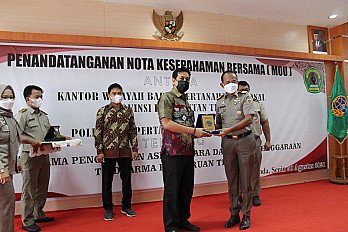SAMARINDA (18/06/2025) – Deputy Minister of Higher Education, Science, and Technology of the Republic of Indonesia (Wamendiktisaintek RI) Prof. Stella Christie, Ph.D. conducted a working visit to the Samarinda State Agricultural Polytechnic (Politani Samarinda), Wednesday (18/6/). The presence of the Deputy Minister of Higher Education, Science, and Technology emphasized that the current government led by the President of the Republic of Indonesia, Prabowo Subianto, continues to encourage the strengthening of the science and technology ecosystem in the regions.
The government views vocational campuses not only as educational institutions, but also as centers for creating contextual and directly impactful science-based solutions.
"By strengthening the role of vocational campuses as local innovation hubs for vocational higher education institutions in bridging the results of applied research with the needs of society and the business world at the regional level," he said.
Prof. Stella's visit was also part of a series of activities to emphasize the strategic position of the Minister of Education and Science. He also emphasized in front of the students and lecturers who were present regarding the encouragement of strengthening applied research and collaboration with industry. The importance of developing research that is oriented towards the needs of industry and society.
Prof. Stella also stated that improving the quality of human resources through applied research will strengthen national competitiveness in the global arena.
"Polytechnics, as vocational education institutions, are expected to be pioneers in producing innovations that are applicable and relevant to the latest technological developments. I appreciate the efforts of the Polytechnic in Samarinda in building a research ecosystem involving students, lecturers, and industry partners," he explained.
This is also an important momentum for Politani Samarinda and Polnes to continue to increase research capacity and expand cooperation networks with various parties, in order to support regional and national development.
"Every year, different research is issued but not focused. The focus of research can see industries that are able to see downstream partners," he said.
Prof. Stella emphasized a concrete example of a problem when there are no experts related to palm oil, for example, so that research products can absorb the needs of the industrial market.
"Our research must be competitive. Wherever a developed country is, many people must do research, and there must be incentives. We are still trying and fighting through LPDP so that there are direct incentives for researchers," he said.
In the 40-minute discussion, academics and external partners were also given a number of important notes on the importance of building a sustainable innovation ecosystem, based on collaboration, and not just a short-term project.
"The science and technology ecosystem must be built from local realities, but with global standards. We want research and technology development in Samarinda not to stop as a project, but to develop into a structured, networked, and long-impact work pattern," said Prof. Stella.
The role of vocational universities will be increasingly central in the future, especially in the context of the development of eastern Indonesia and national strategic areas such as the Indonesian Capital City (IKN).
"Campus is not only a place to learn, but also a place to solve problems. A place where people can ask how to deal with climate change, how to process waste, how to survive with simple but smart technology," he added.
On that occasion, several lecturers also presented the results of superior research that was being developed, including a lecturer from Politani Samarinda, Rusmini, S.P., M.P. presented some of her research, one of which was on Innovation Technology for Utilizing Agricultural and Livestock Waste as Organic Fertilizer Enriched with Biological Agents, which is intended to support local food security.
Meanwhile, Eny Maria, S.Com., M.Cs. presented the results of her research on Smart Farming Technology which has been implemented in 3 Farmer Groups, as well as the Development of the Megical Sedu Application, a learning media that has been used by Pelita Bunda School and the East Kalimantan Population, Women's Empowerment and Child Protection Service (DKP3A) as a learning aid for children with special needs, especially children with autism.
Director of Politani Samarinda, Hamka, S.TP., M.Sc., M.P. welcomed the support of the central government. He said that this visit was a new encouragement for lecturers and students. Hamka saw the visit of Deputy Minister Stella as an important step in opening a dialogue between the government and vocational campuses.
"This is not just a visit, but a strong sign that the government is serious about building innovation from the regions," said Hamka.
As a follow-up, the Ministry of Higher Education, Science, and Technology will continue to encourage:
* Strengthening applied research
* Establishing regional innovation partnerships
* Downstreaming research results to the community and industry
All of this is done with an adaptive, participatory, and local potential-based approach.
Meanwhile, Polnes Director, Ahyar Muhammad Diah also welcomed the support of the central government, and said that programs like this are positive energy to strengthen the spirit of lecturers and students in producing relevant innovations.
"The Deputy Minister's visit is not only a form of structural support, but also opens up a healthy and constructive dialogue space between the government and vocational campuses," he said.
As part of the follow-up, the Ministry of Education and Science and Technology will continue to strengthen support for applied research.
"The formation of a regional innovation partnership ecosystem, and downstreaming of research results through an adaptive, participatory, and local potential-based approach is certainly an innovation," concluded Ahyar. (HUMAS)
The government views vocational campuses not only as educational institutions, but also as centers for creating contextual and directly impactful science-based solutions.
"By strengthening the role of vocational campuses as local innovation hubs for vocational higher education institutions in bridging the results of applied research with the needs of society and the business world at the regional level," he said.
Prof. Stella's visit was also part of a series of activities to emphasize the strategic position of the Minister of Education and Science. He also emphasized in front of the students and lecturers who were present regarding the encouragement of strengthening applied research and collaboration with industry. The importance of developing research that is oriented towards the needs of industry and society.
Prof. Stella also stated that improving the quality of human resources through applied research will strengthen national competitiveness in the global arena.
"Polytechnics, as vocational education institutions, are expected to be pioneers in producing innovations that are applicable and relevant to the latest technological developments. I appreciate the efforts of the Polytechnic in Samarinda in building a research ecosystem involving students, lecturers, and industry partners," he explained.
This is also an important momentum for Politani Samarinda and Polnes to continue to increase research capacity and expand cooperation networks with various parties, in order to support regional and national development.
"Every year, different research is issued but not focused. The focus of research can see industries that are able to see downstream partners," he said.
Prof. Stella emphasized a concrete example of a problem when there are no experts related to palm oil, for example, so that research products can absorb the needs of the industrial market.
"Our research must be competitive. Wherever a developed country is, many people must do research, and there must be incentives. We are still trying and fighting through LPDP so that there are direct incentives for researchers," he said.
In the 40-minute discussion, academics and external partners were also given a number of important notes on the importance of building a sustainable innovation ecosystem, based on collaboration, and not just a short-term project.
"The science and technology ecosystem must be built from local realities, but with global standards. We want research and technology development in Samarinda not to stop as a project, but to develop into a structured, networked, and long-impact work pattern," said Prof. Stella.
The role of vocational universities will be increasingly central in the future, especially in the context of the development of eastern Indonesia and national strategic areas such as the Indonesian Capital City (IKN).
"Campus is not only a place to learn, but also a place to solve problems. A place where people can ask how to deal with climate change, how to process waste, how to survive with simple but smart technology," he added.
On that occasion, several lecturers also presented the results of superior research that was being developed, including a lecturer from Politani Samarinda, Rusmini, S.P., M.P. presented some of her research, one of which was on Innovation Technology for Utilizing Agricultural and Livestock Waste as Organic Fertilizer Enriched with Biological Agents, which is intended to support local food security.
Meanwhile, Eny Maria, S.Com., M.Cs. presented the results of her research on Smart Farming Technology which has been implemented in 3 Farmer Groups, as well as the Development of the Megical Sedu Application, a learning media that has been used by Pelita Bunda School and the East Kalimantan Population, Women's Empowerment and Child Protection Service (DKP3A) as a learning aid for children with special needs, especially children with autism.
Director of Politani Samarinda, Hamka, S.TP., M.Sc., M.P. welcomed the support of the central government. He said that this visit was a new encouragement for lecturers and students. Hamka saw the visit of Deputy Minister Stella as an important step in opening a dialogue between the government and vocational campuses.
"This is not just a visit, but a strong sign that the government is serious about building innovation from the regions," said Hamka.
As a follow-up, the Ministry of Higher Education, Science, and Technology will continue to encourage:
* Strengthening applied research
* Establishing regional innovation partnerships
* Downstreaming research results to the community and industry
All of this is done with an adaptive, participatory, and local potential-based approach.
Meanwhile, Polnes Director, Ahyar Muhammad Diah also welcomed the support of the central government, and said that programs like this are positive energy to strengthen the spirit of lecturers and students in producing relevant innovations.
"The Deputy Minister's visit is not only a form of structural support, but also opens up a healthy and constructive dialogue space between the government and vocational campuses," he said.
As part of the follow-up, the Ministry of Education and Science and Technology will continue to strengthen support for applied research.
"The formation of a regional innovation partnership ecosystem, and downstreaming of research results through an adaptive, participatory, and local potential-based approach is certainly an innovation," concluded Ahyar. (HUMAS)
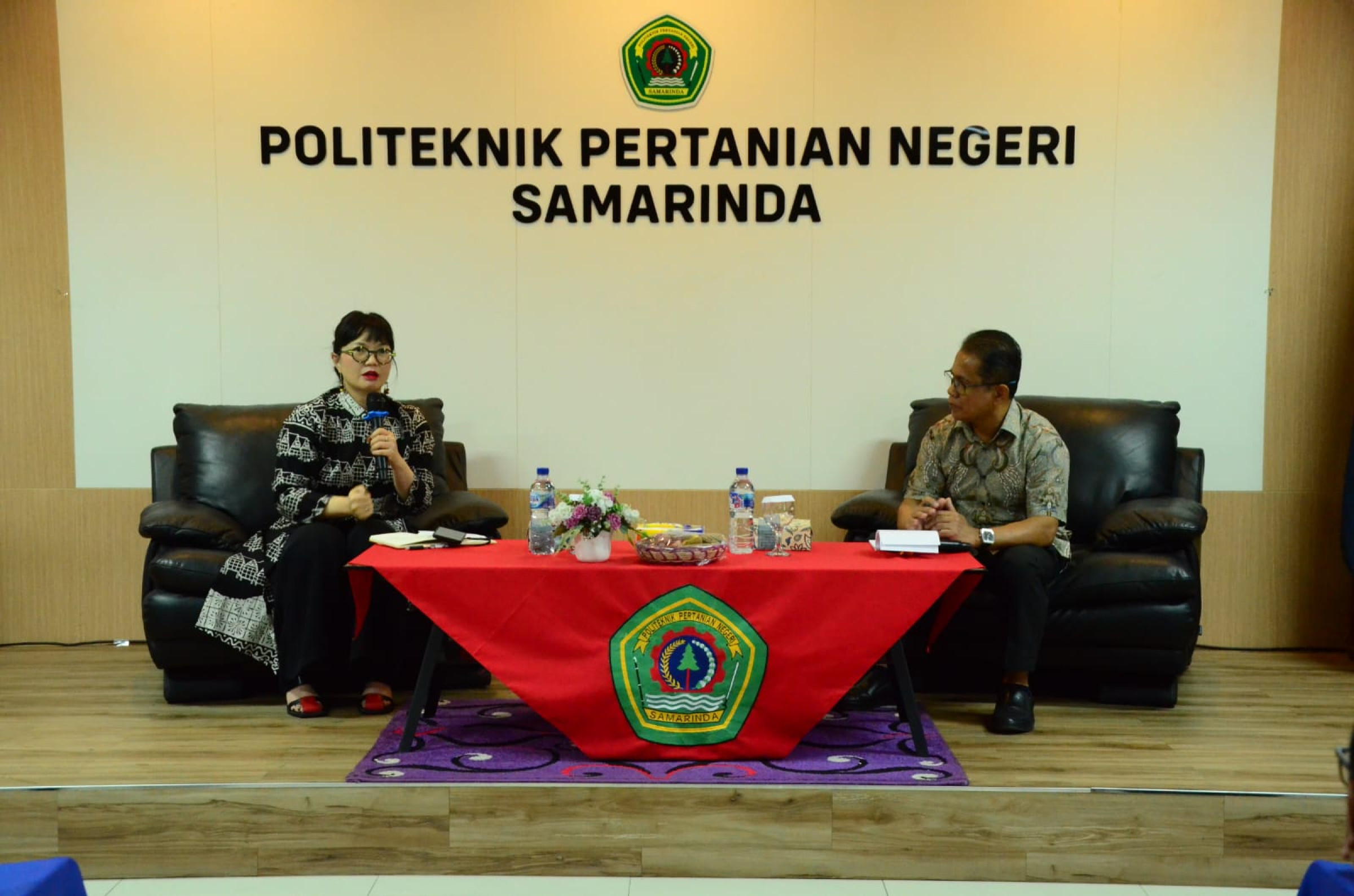
-cover.jpg)
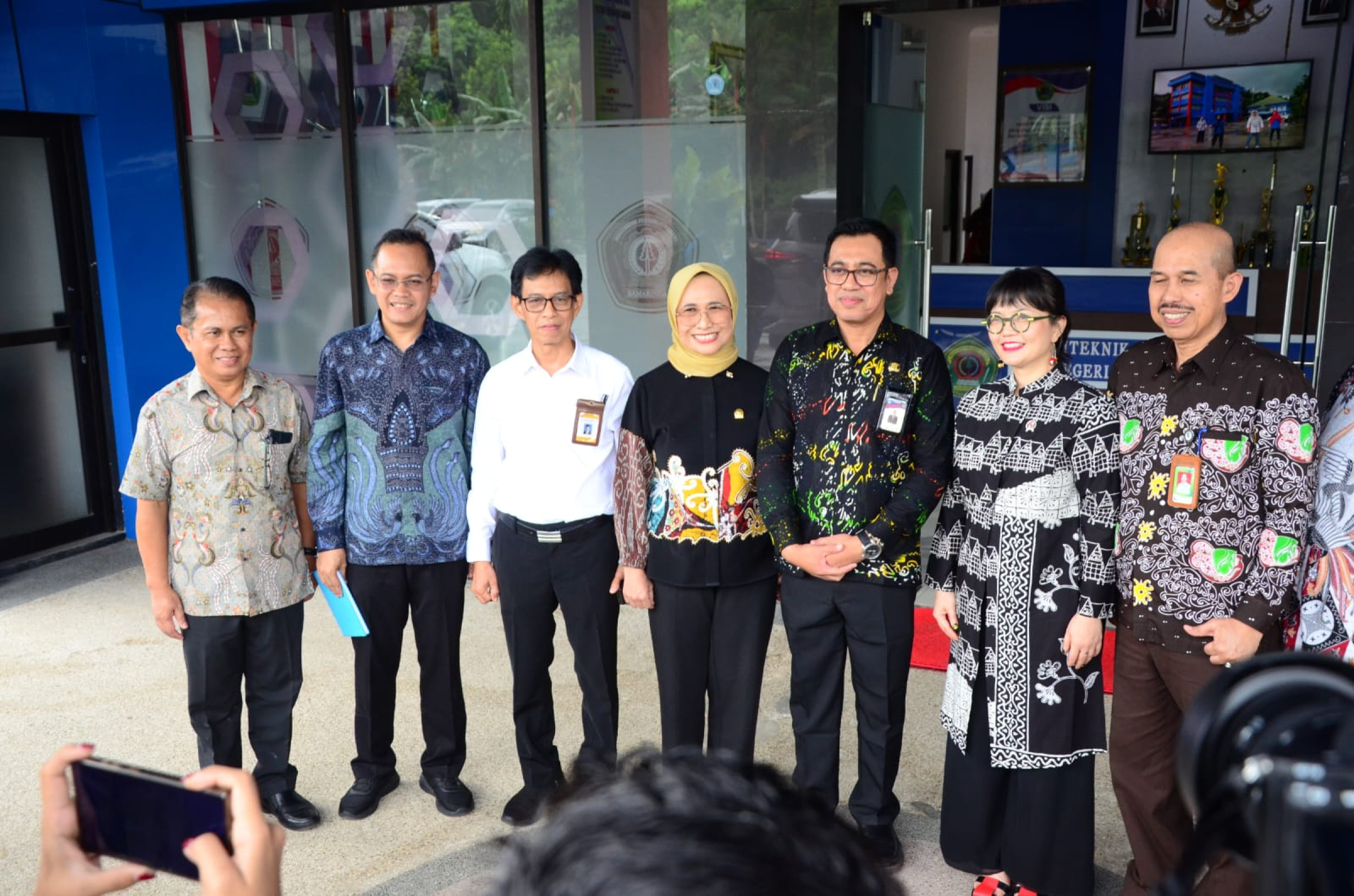
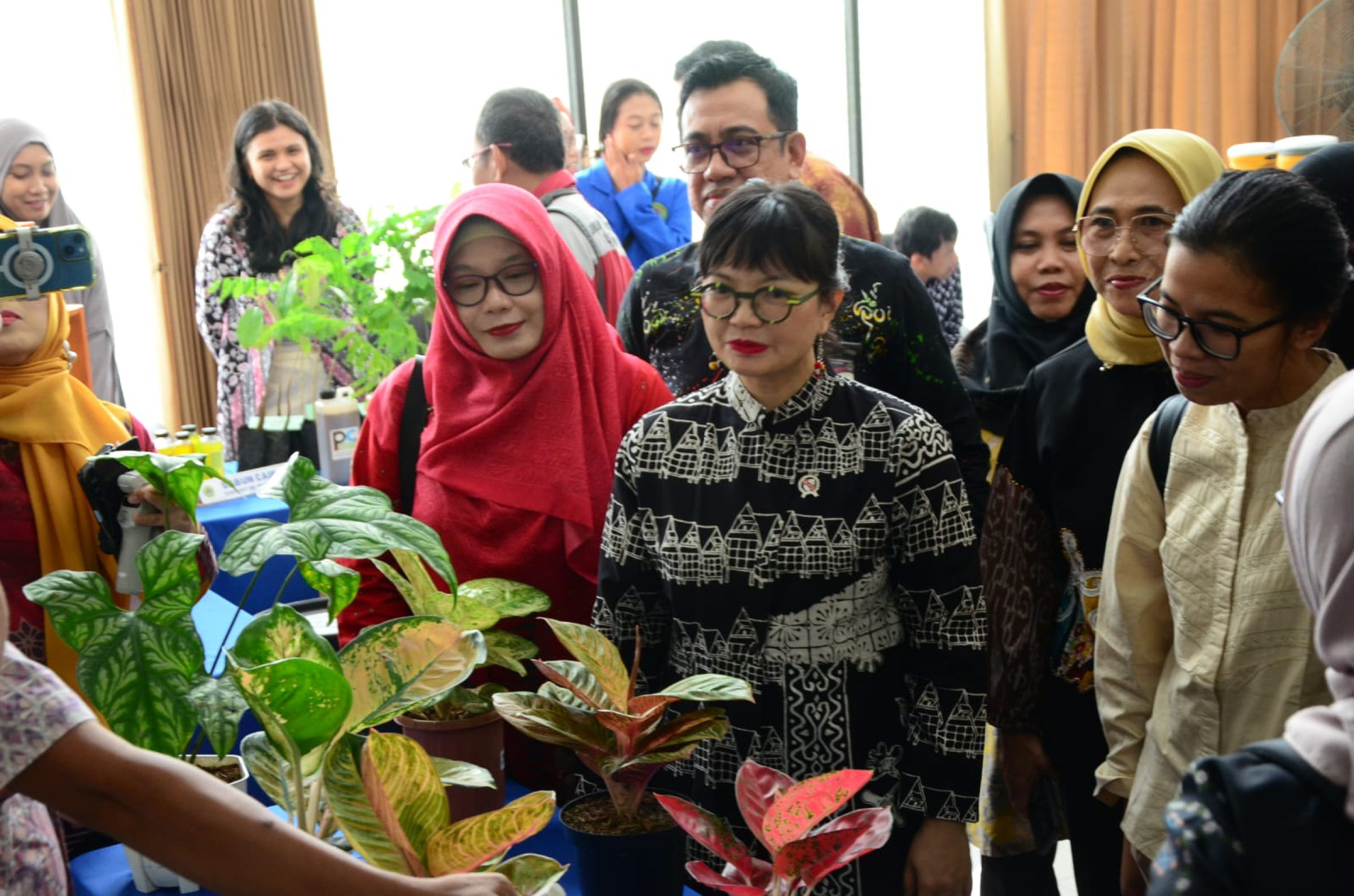
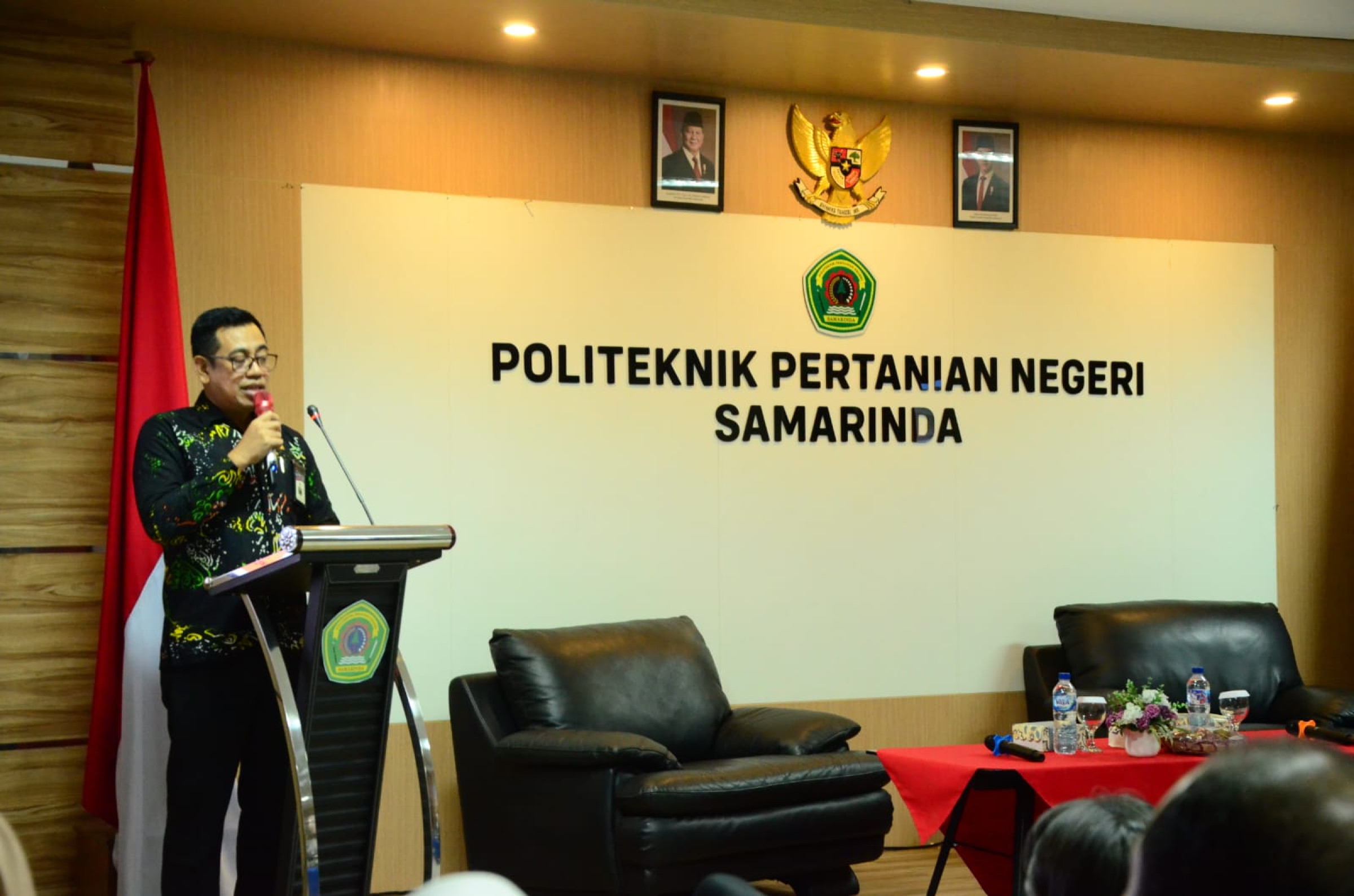
-cover.jpg)
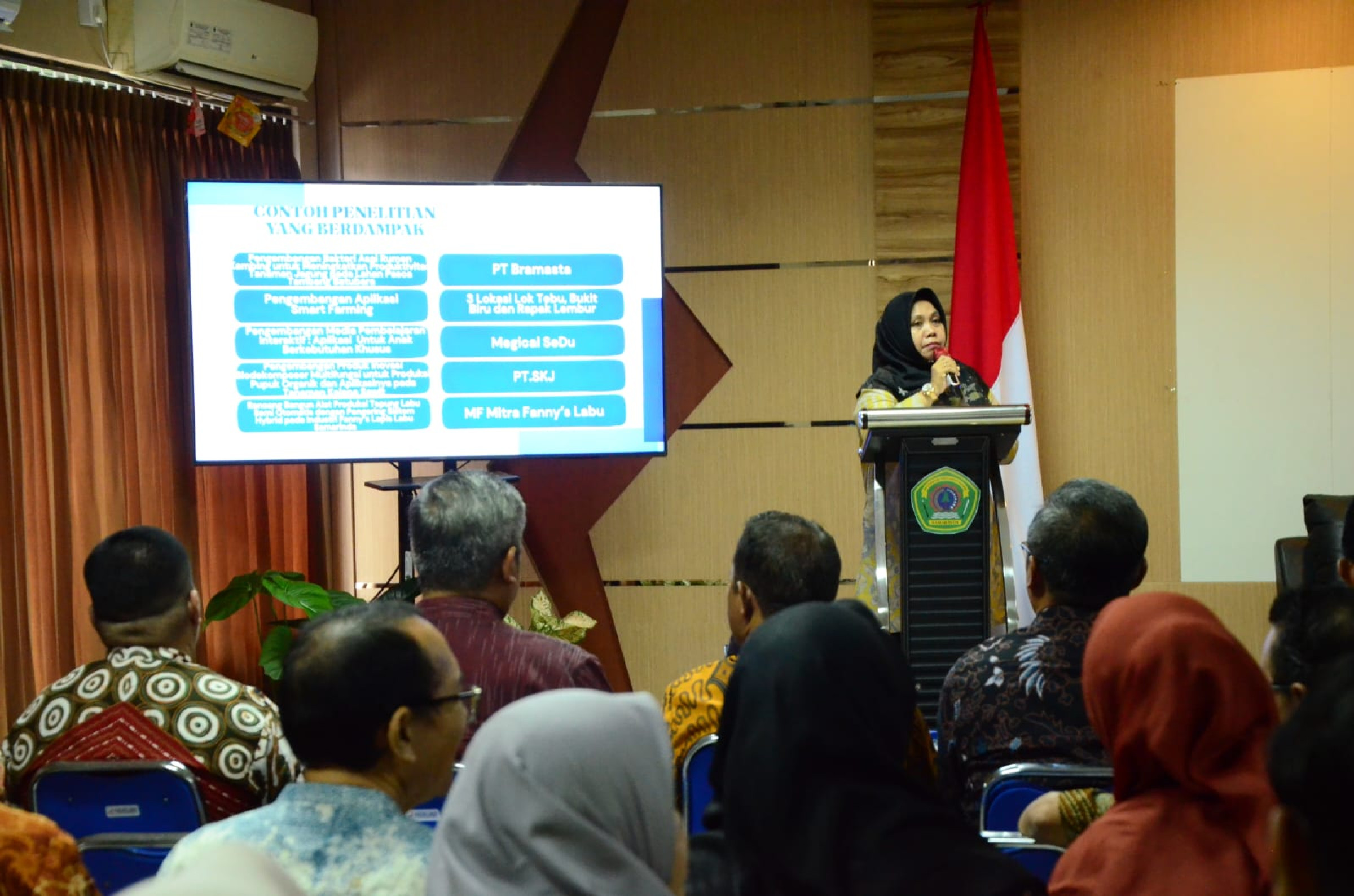
-cover.jpg)
-cover.jpg)
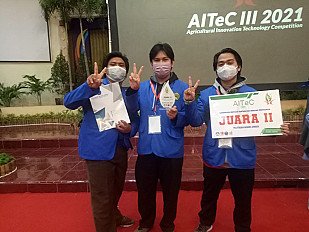
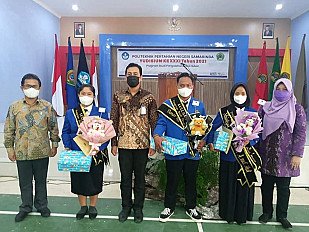
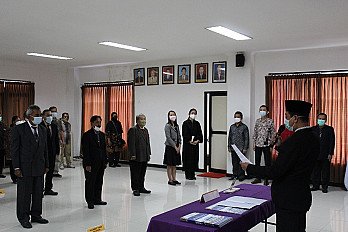
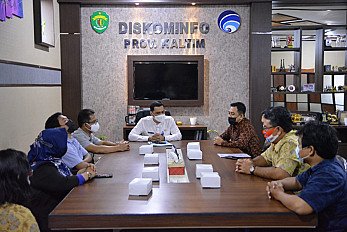
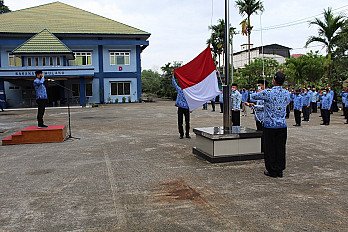
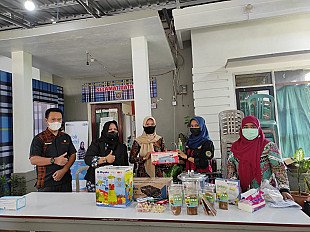
-thumb.jpg)
